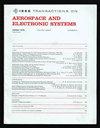航天器系统锂离子电池健康状态估计的领域相似元学习
IF 5.7
2区 计算机科学
Q1 ENGINEERING, AEROSPACE
IEEE Transactions on Aerospace and Electronic Systems
Pub Date : 2025-02-12
DOI:10.1109/TAES.2025.3540806
引用次数: 0
摘要
数据采集难度大、采集成本高、工作环境变化等因素导致的数据限制严重阻碍了航天器系统锂离子电池健康状态的准确估算。为了实现对锂离子电池SOH的精确估计,提高学习方法在不同工况下的适应性,提出了一种与领域相似度模型无关的元学习方法。首先,我们设计了一种动态-静态特征提取方法,充分利用有限电池数据中的信息,并通过灰色关联系数将得到的特征联系起来,以收集足够的信息。然后,通过最大平均差异算法计算训练任务之间的域相似度,对训练任务进行排序,减少再训练时间。最后,在元学习框架中加入长短期记忆(LSTM)模型,捕捉SOH与电压时间序列之间的长期依赖关系,并将排序任务嵌入元训练过程中,提高对不同工作条件的适应性。通过NASA和MIT的数据集验证了该方法的有效性,对比实验结果表明,在少镜头场景下,与传统的MAML相比,该方法的平均误差降低了73%,运行速度提高了20%。本文章由计算机程序翻译,如有差异,请以英文原文为准。
Domain Similarity Meta-Learning for Lithium-Ion Battery State-of-Health Estimation of Spacecraft Systems
Data limitation caused by the difficulty of data acquisition, the high cost of data collection, and the changes of working conditions is a serious obstacle to the accurate lithium-ion battery state of health (SOH) estimation for spacecrafts system. To achieve accurate few-shot lithium-ion battery SOH estimation and enhance the adaptability of learning methods across varying working conditions, a domain similarity model agnostic meta-learning method is proposed. First, we design a dynamic–static feature extraction method to adequately exploit information from the limited battery data and link the obtained features by gray correlation coefficients to collect sufficient information. Then, by calculating the domain similarity between the training tasks through the maximum mean discrepancy algorithm, the training tasks are ranked to reduce the retraining time. Finally, an long short-term memory (LSTM) model is added to the meta-learning framework to capture the long-term dependency relationships between SOH and time series of the voltage, and the ranked tasks are embedded in the meta-training process to improve adaptability in different working conditions. The effectiveness of the proposed method is validated by NASA and MIT datasets, and comparative experimental results illustrate that the proposed method average error is reduced by 73%, and the running speed is increased by 20% compared with traditional MAML in few-shot scenarios.
求助全文
通过发布文献求助,成功后即可免费获取论文全文。
去求助
来源期刊
CiteScore
7.80
自引率
13.60%
发文量
433
审稿时长
8.7 months
期刊介绍:
IEEE Transactions on Aerospace and Electronic Systems focuses on the organization, design, development, integration, and operation of complex systems for space, air, ocean, or ground environment. These systems include, but are not limited to, navigation, avionics, spacecraft, aerospace power, radar, sonar, telemetry, defense, transportation, automated testing, and command and control.

 求助内容:
求助内容: 应助结果提醒方式:
应助结果提醒方式:


